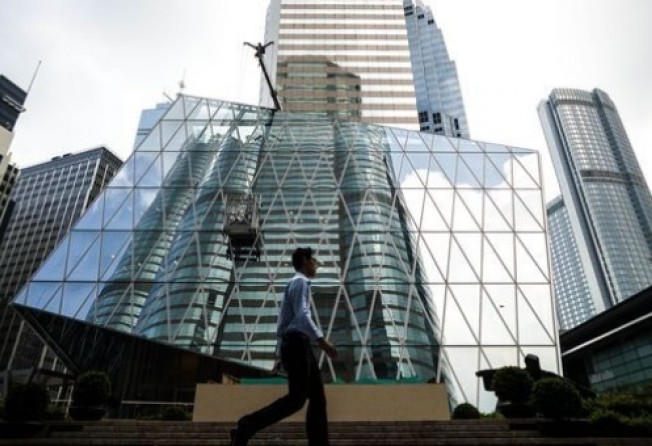How Hong Kong can become the start-up capital of the world

The news these days, and not just in Hong Kong, is full of talk about Hong Kong and start-ups. There are articles in Forbes and the Wall Street Journal, while Cyberport is handing out HK$200 million to tech start-ups. Whereas there were virtually no start-ups in Hong Kong just a few years ago, StartBase now lists hundreds. StartupsHK, the largest community for start-ups in Hong Kong, has over 5,000 followers on its social media channels. There is now more start-up activity in Hong Kong than ever before, and – unlike the dot-com boom of the late 90s and its subsequent bust –this time start-ups are here to stay. The question is what role Hong Kong will play in the global start-up community. Will it be a major player, producing the Facebooks and WhatsApps of the future, or will it merely give rise to a minimally successful, small-time start-up here and there?
The reliance on a single industry leaves Hong Kong weakly positioned to weather a financial downturn
Some may question whether Hong Kong needs start-ups at all. As a financial centre Hong Kong is flush with cash, which has trickled out to buoy up the real estate and service sectors. But it is precisely this reliance on a single industry – finance – that leaves Hong Kong weakly positioned to weather a financial downturn. Between the policies of the United States Federal Reserve and China’s central government, the global financial system is in a perilous state. The slightest downturn in one part of the world could collapse the house of cards that has been built, leading to serious repercussions for a city like Hong Kong. Hong Kong needs to diversify – and fast. Start-ups, and tech start-ups specifically, are the solution because these companies can produce wealth and jobs faster than virtually any other type of business.
If the SAR government is wise, it will take steps to turn Hong Kong into the start-up capital of the world. Here are three steps the government could take that would turn Hong Kong into a global destination for entrepreneurs and start-ups from around the world.
1. Start-up visas. It was relatively easy for me to get a business investment visa when I moved to Hong Kong from the US one year ago. I can’t even begin to imagine how much easier it must have been than for someone trying to move in the opposite direction. But it still took three months, and that’s too long in the start-up world. Entrepreneurs don’t wait three months, or even one or two, to decide where to base their business – they make the decision in days. Hong Kong needs a one-week approval process for visas for entrepreneurs. The Immigration Department could crowdsource the approval process by involving local entrepreneurs who can determine the legitimacy of an applicant in seconds. The cost of increased visa processing can be covered by the applicants, making it zero cost for the government.
2. No taxes on start-ups for five years. Start-ups usually aren’t profitable for several years and therefore don’t pay taxes anyway, so what does the government have to lose? But Hong Kong has everything to gain in terms of positive press by formalising this into policy. Sure, Singapore and other governments get a trickle of press coverage by giving out grants to start-ups, but zero taxes would be the kind of news that would get entrepreneurs worldwide to take notice. Hong Kong could follow this up with added incentives in the form of tax breaks for investors and employees in start-ups. This isn’t just my crazy idea, it was proposed by Peter Drucker, the father of modern management theory.
3. Eliminate restrictions on hiring non-permanent residents. Large corporations can easily sponsor visas for foreign workers, but the cost is daunting for many start-ups, and the process is confusing and difficult for entrepreneurs who have never been through it before. In my business, I typically hire an employee on a part-time basis to work for me in order to test them out for one to two months. If this works out, I make an offer of full-time employment. This allows the employee and me to make sure we want to make that full-time commitment. But legally I can only do this with permanent residents, which dramatically shrinks the pool of workers I can choose from, slowing down the speed at which I can grow my business. While this policy may appear to provide better employment opportunities for permanent residents, in reality it hurts Hong Kong’s entire economy, making everyone worse off. Instead of requiring non-permanent residents to have an employment visa sponsored by a company in order to work in Hong Kong, the government could grant qualified individuals work visas that don’t require sponsorship. Rather, the visa would be approved on an annual basis, and would follow the individual regardless of who their employer is. This would create greater mobility amongst workers and allow them to find their most productive place in the economy faster, which would ultimately benefit everyone.
Naturally, doing all this would create some challenges that would have to be worked out, but we’re talking about the economic future of Hong Kong. If Hong Kong does not diversify its economy, the day will come when the financial sector encounters a major setback, and the entire economy will suffer greatly as a result. Making these investments to promote entrepreneurship and start-ups now will help Hong Kong prepare for a prosperous future.
Joshua Steimle is the CEO of MWI, a digital marketing agency with offices in Hong Kong and the U.S.